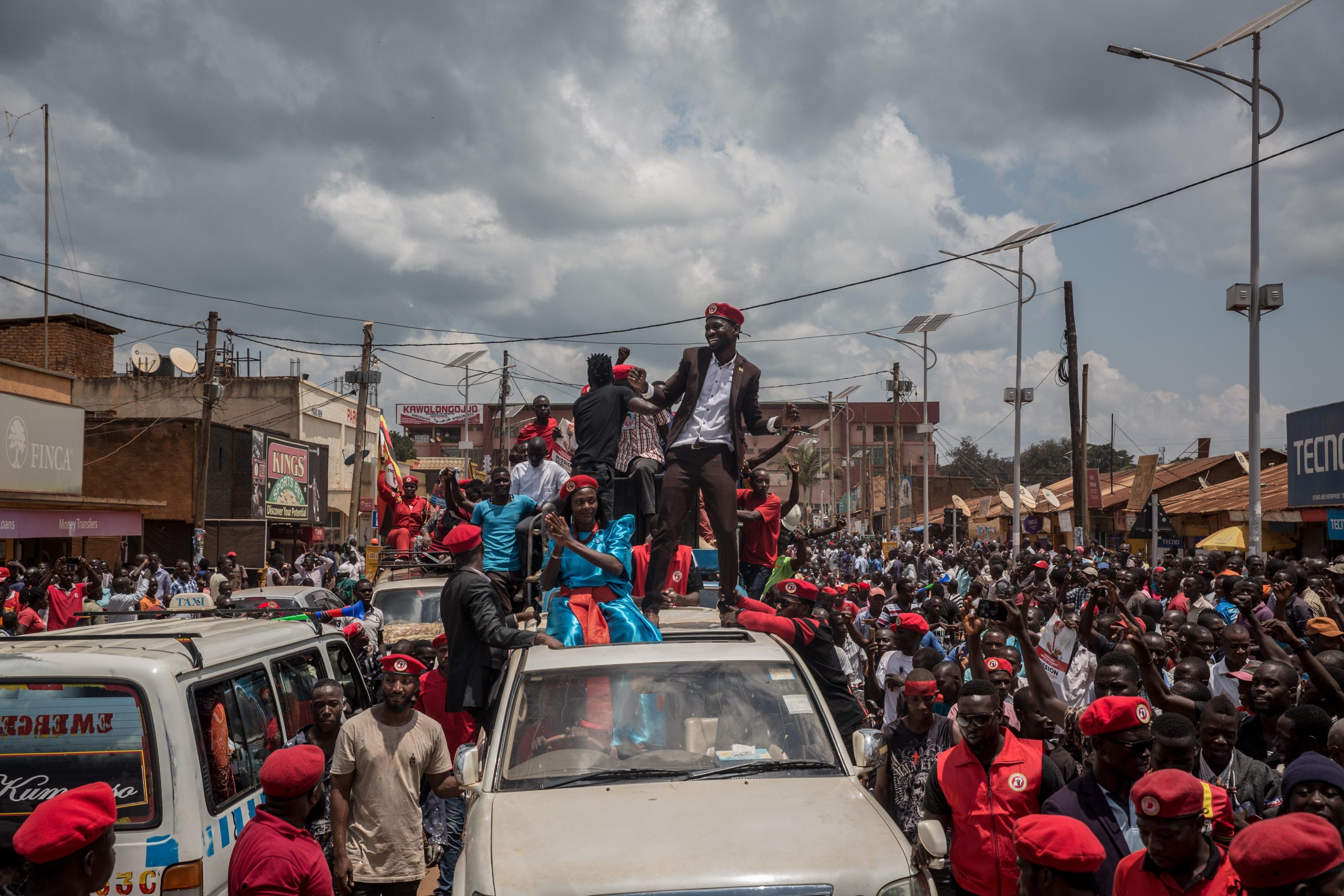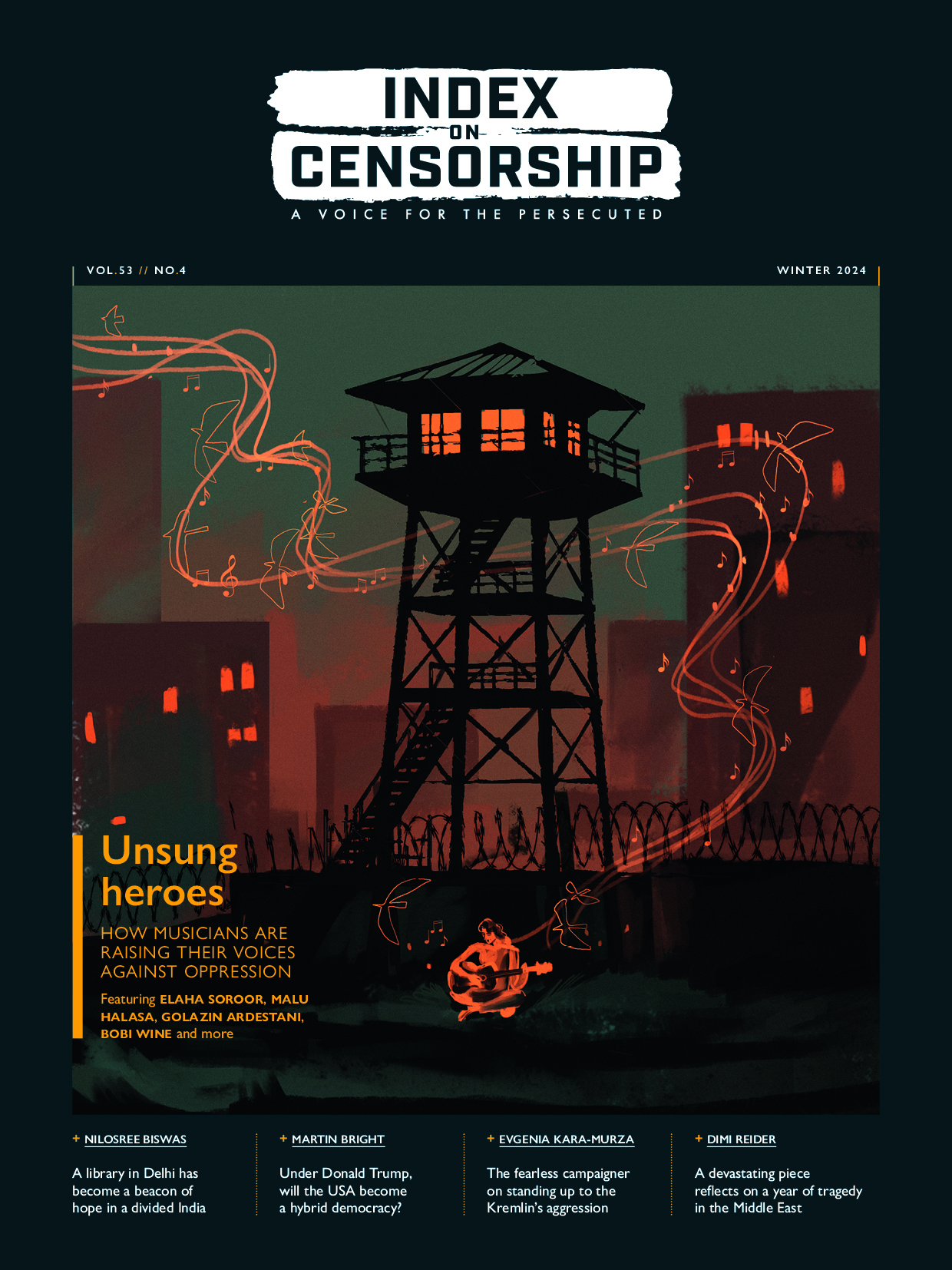In recent months, several young men and women in Uganda have been arrested and charged for views they expressed on TikTok.
In the East African country, the freedom of expression landscape has deteriorated to the extent that one cannot hold a placard and march anywhere in support of a cause or in protest against an injustice. You will be roughed up by the Uganda Police Force, bundled into a police van, locked up in a cell and charged with the colonial-era “common nuisance” offence that the government uses to crush demonstrations.
Consequently, people with critical views turn to social media platforms like TikTok and X. Facebook is not available in Uganda – it was banned in January 2021 after the platform pulled down hundreds of pages that were linked to the government and thought to be fake. Facebook said that it acted after an investigation showed the accounts were attempting to influence the January 2021 presidential elections in favour of the incumbent, Yoweri Museveni, who has ruled Uganda since January 1986.
But even on TikTok or X, which are still allowed in the country, there is the likelihood that you will be arrested for expressing views considered offensive (particularly towards members of the first family – the family of the president) or deemed hateful (usually to members of Museveni’s sub-tribe or tribe, Banyankole, who hold many top positions across multiple sectors in the country).
Those recently arrested and charged include 21-year-old David Ssengozi (alias Lucky Choice), 28-year-old Isaiah Ssekagiri and 19-year-old Julius Tayebwa, all charged in November 2024 with hate speech and spreading malicious information against the first family. They are now awaiting trial.
There are more, although reporting is sparse. Instead, TikTokers themselves cover each other’s cases. Agora Discourse, a platform holding the Ugandan authorities to account, gave Index a list of those who have been charged. They include 26-year-old Muganga Fred, 19-year-old Wasswa Noah (alias Sturbon Josh) and Passy Mbabazi, a member of the National Unity Platform (NUP), the leading opposition party in the country, all charged with hate speech against either Museveni, his family or party members.
Except for Mbabazi’s case, which is ongoing at Bushenyi Magistrate’s Court, Western Uganda, the rest of the cases are being tried at Entebbe Chief Magistrates’ Court in Central Uganda, under one magistrate, Stella Maris Amabilis, who has already found two TikTokers guilty as charged and sentenced them to jail terms.
One of these is 21-year-old Emmanuel Nabugodi, who received a 32-month sentence on 18 November 2024 for hate speech and spreading malicious information about President Museveni for a comedy video in which he held a mock trial of the long-ruling soldier and politician, whom he found guilty and sentenced to a public flogging.
The other is 24-year-old Edward Awebwa, who received a six-year jail term for demeaning President Museveni, his wife Janet Museveni and his son General Muhoozi Kainerugaba. These two convictions make Amabilis, the magistrate, predictable – it is likely that the rest of the TikTokers being tried by her will be found guilty as well.
At least three patterns arise from the above arrests and charges (and, in two occasions, prison sentences). First, Museveni and his family members are the offended parties – the untouchables against whom nobody dares raise a voice. This makes the charges politically motivated with their sole aim being to crush dissent.
Second, the commonly preferred charges are hate speech and spreading malicious information about the people in the ruling party, under the notorious Computer Misuse Act (as amended in 2022).
Finally, most of those being criminally prosecuted are young people, mainly in their twenties.
It is nothing new for critical voices posting online to suffer prosecution in Uganda. Take Stella Nyanzi, an academic, poet and politician, and Kakwenza Rukirabashaija, a novelist, memoirist and lawyer. The former was jailed in 2019 for 18 months for writing a poem on Facebook suggesting that Museveni should have died at childbirth to save Uganda from tyranny. The latter was kidnapped, detained and has described how he was tortured in December 2022, when he wrote on Twitter (now X) that Museveni’s son Kainerugaba was “obese” and a “curmudgeon” and that the Musevenis had “imposed enormous suffering on this country [Uganda]”.
These arrests and prosecutions usually target voices critical of the ruling party. The people who use their social media accounts to express views critical of opposition politicians do not face arrest or prosecution.
According to Godwin Toko, a lawyer and human rights activist, and a member of the Network of Public Interest Lawyers (NETPIL), the crackdown on TikTokers is meant to entrench a culture of silence, unaccountability and untouchability by instilling fear in Ugandans so that they do not participate in public debates that call for better governance.
“Generally, freedom of expression is the bedrock for other freedoms. Without it, other freedoms are hard to guarantee. This has greatly impacted our democracy as people aren’t able to hold leaders accountable,” Toko told Index, calling on Ugandans to “boldly, fearlessly and persistently hold their leaders accountable by using any means necessary to safeguard and further freedom of expression”.
Toko is one of the founding members of Agora, a digital public square spotlighting mismanagement of public resources, be it roads that are potholed, hospitals that are not adequately staffed and stocked, or public institutions, like Parliament, that are corrupt.
The platform was founded after it became impossible for Ugandans to hold peaceful protests after the Public Order Management Act came into force in 2013. The Uganda Police Force has been criticised for misinterpreting the law and shutting down any form of demonstration, as shown by how brutally they arrest anybody who attempts to hold a placard in support of a cause or in castigation of an injustice.
But members loyal to the ruling party are allowed to hold demonstrations of any kind, whenever they wish to. These double standards common among Uganda’s ruling elite are what make TikTokers and freedom of expression activists loud in their condemnation of Museveni, his family members, and his ardent lieutenants.
Unfortunately, this comes at a heavy cost – brutal arrests, drawn-out judicial trials and potentially long prison sentences – to which jailed TikTokers Nabugodi and Awebwa, among others, can attest.





